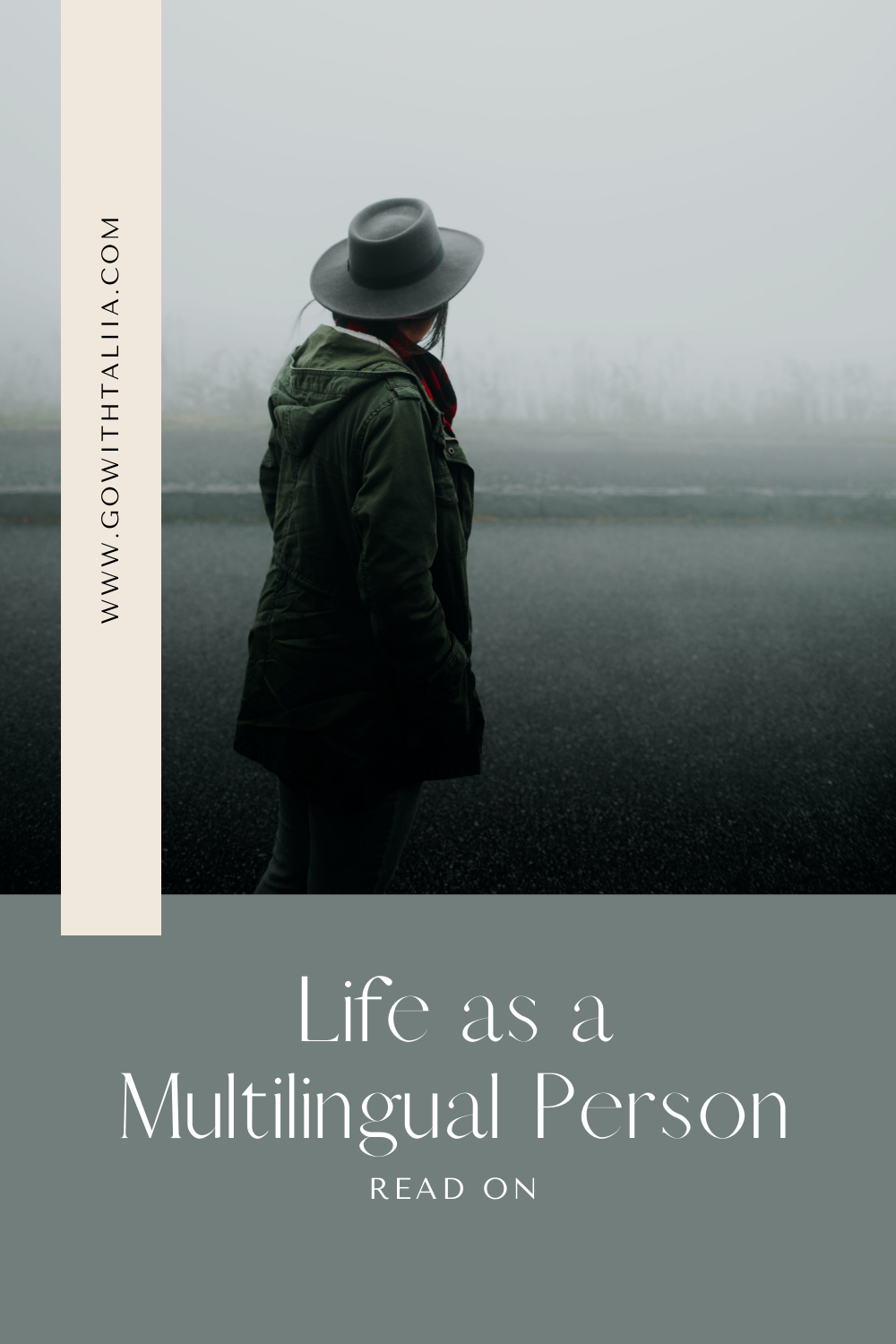There is an evergrowing curiosity concerning the benefits of speaking a foreign language in addition to our native tongue. Scientists and psychologists astound their students and audiences with the belief that more than half of the world’s population is bilingual. That is a shocking estitmate even to me. But first, lets outline what bilingualism is before I delve deeper into this article. Biligualism, by definition according to the dictionary, is the ‘ability to speak two languages with the ease as that of a native speaker.’ I have been speaking two different languages since I first learned how to formulate coherent words and I never thought it was peculiar that I spoke a second one. Now as an adult, I am faced with a series of silly questions people have asked myself and other multilingual friends about the pros and cons of speaking more than one language. Therefore, life as a multilingual can be both rewarding and challenging.
They say that only 20% of the United States is bilingual and growing up in the American Southwest, I would have disagreed with that number completely. My fellow schoolmates learned a bit late in life that I was already fluent in two languages when they just began learning a mandated foreign one. But there are drawbacks as well as benefits, here are my observations:

I interchange words from one language to another
Polish is my language by default. Although, I can argue that English is as well. The amount I use either language is neck and neck in most circumstances. There have been many a time where friends have been privy to a brief but accelerated conversation I had with a family member in which they can distinctly point out every English word that was exchanged but nothing else. That friend also had eyes the size of saucers and an expression that spelled out “How can you switch from one language to another like that and not get lost?” Simple answer, with practice. When my parents immigrated to the U.S. they also didn’t speak English so they taught my sister and myself the only language they did know, Polish. Over time, actually at the same time my sister and I were learning English, so were my parents.
I’m never satisifed with certain expressions in one language and instead use foreign ones
When arguments exist between my parents and myself, they choose to verbally ‘slap me on the hand’ in Polish. When I argue with my sister, we do so in an elevated tone in English. Other situations call for completely different expressions and I have three languages to choose from. Let’s not forget that I’m also currently learning German and thus using common German expressions with my parents in place of Polish. And, let’s face it, as a multilingual person, sometimes it sounds better to say it one language as opposed to the other depending on the context. I think this is something that is difficult for monolinguals to understand (don’t take my word for it). C’est la vie.
I invent new words, sounds and expressions
Sometimes a word, phrase, or idiom in one language cannot be translated into another. This is where my right brained, creative imagination steps on stage and I come up with completely new words that cannot be found in language books. The result is due to a combination of sounds a word in one language makes and the quick description of the word that I’m trying to describe in the second language. Not always does it make sense when I say it out loud, but in my mind it made total sense.
I’m always the new kid/foreigner/stranger in social situations
I’ve graduated high school with the same kids I went to 1st grade with and they still think I’m a foreigner because I speak more languages than they do (or maybe it was because I didn’t talk much in school to begin with). In other social settings, I’ve been told that because I speak Polish, I can’t be Polish because I have an accent. I’ve also been told by my fellow American friends that I have a non-American accent and they eye me with suspicion thinking I am a spy while mentally trying to remember the phone number to the local CIA branch. It doesn’t matter that I speak French, the French people are kind enough to think I’m a seasoned immigrant and patiently say nothing about my accent but their eye-roll sells them out. In my new home, Germany, this is the only place I truely stand out as the foreigner and usually the giveaway is my confused facial expression when someone asks me something auf Deutsch.

Subtitles stress me out
When I watch a film in Polish with English subtitles or vice versa, I am always that one person that gets mildy irritated with the poor translations I read on the bottom of the screen. Jokes and humor are lost, emotion and feeling are not very well timed or the translation is just mediocre and out of context from the original premise of the film. Like that one time I thought it a good idea to go to the cinema here in Germany thinking the film will be subtitled. I was wrong. I felt like I needed two glühwein’s just to comprehend a James Bond flick.
I never know which sports team I should support
In most countries sports are an integrated part of life and as is the case in Poland, Germany and the U.S. There is just one problem. I can’t support just one team. If Poland and the U.S. are playing that would be the day I refrain from watching the match all together. Since moving to Germany, my cousin had already initiated me into his family of Borussia Dortmund fans and it is frowned upon to like any other team. In other words, I am not the best person to take to official sports games with. End of story.
People ask me ridiculous questions
At times I feel I should write down all the silly questions I get from random people. While some are positively hilarious, I’ve trained my facial muscles to keep neutral while I laugh a little on the inside. There are also some pretty legit questions I’ve received as well as being asked to translate foreign films, been invited to watch foreign films with the line ‘but you speak half of the world’s languages anyways so it should be easy for you’. Not fun. It’s also not fun when my date asks me if I’m a spy (see above in number 4). They proceed to never believe me when I say that I just have a knack for learning new things.
In response to a common question: Yes. I do get confused sometimes but I quickly catch on and readjust my brain.
Living as a multilingual is quite normal, or at least I think it is. The past few weeks I’ve been asking several of my bilingual friends how they feel about knowing at least two languages, the honest response is that they grew up with it and it became part of life.
Do you have some struggles being a multilingual too? Share them here.
